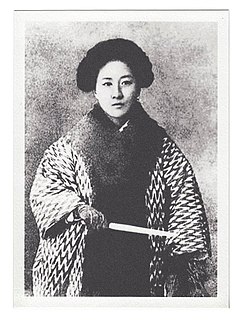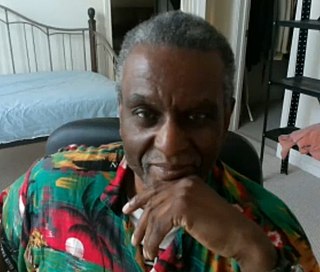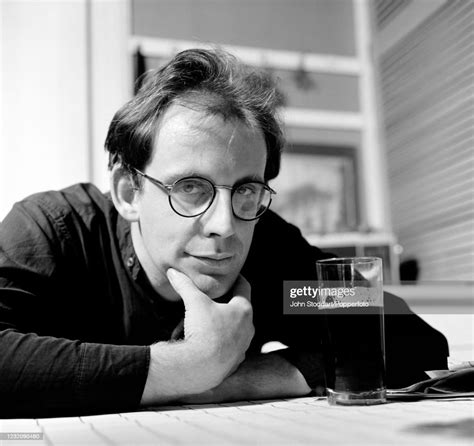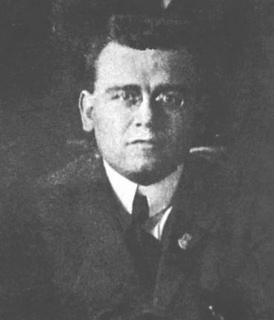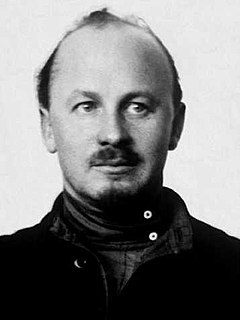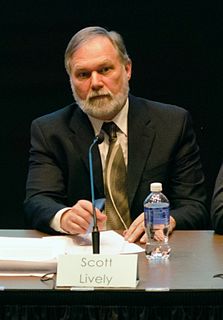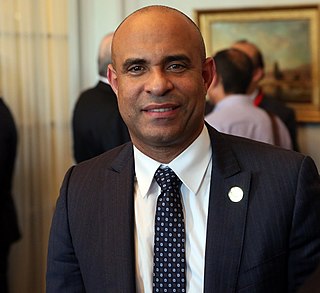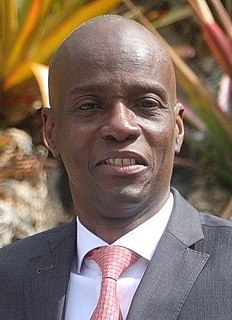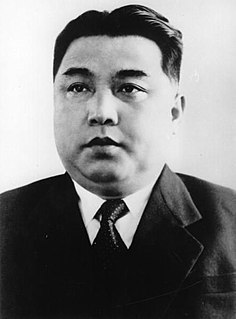Top 1200 Haitian Revolution Quotes & Sayings
Explore popular Haitian Revolution quotes.
Last updated on October 8, 2024.
In comparison to the French Revolution, the American Revolution has come to seem a parochial and rather dull event. This, despitethe fact that the American Revolution was successful--realizing the purposes of the revolutionaries and establishing a durable political regime--while the French Revolution was a resounding failure, devouring its own children and leading to an imperial despotism, followed by an eventual restoration of the monarchy.
The white man knows what a revolution is. He knows that the Black Revolution is worldwide in scope and in nature. The Black Revolution is sweeping Asia, is sweeping Africa, is rearing its head in Latin America. The Cuban Revolution - that's a revolution. They overturned the system. Revolution is in Asia, revolution is in Africa, and the white man is screaming because he sees revolution in Latin America. How do you think he'll react to you when you learn what a real revolution is?
I am grateful to the fossil fuel industry for bringing us the concentrated carbon that took us through the Industrial Revolution and through the technological revolution and brought us to the gateway of the renewable energy revolution, or what I call the sunlight revolution. But that is where we must part ways. It's the natural order.
We Marxists believe that a revolution will also take place in other countries. But it will take place only when the revolutionaries in those countries think it possible, or necessary. The export of revolution is nonsense. Every country will make its own revolution if it wants to, and if it does not want to, there will be no revolution.
Even revolution, which transforms a concrete situation of oppression by establishing the process of liberation, must confront this phenomenon. Many of the oppressed who directly or indirectly participate in revolution intend - conditioned by the myths of the old order - to make it their private revolution. The shadow of their former oppressor is still cast over them.
A revolution is bloody, but America is in a unique position. She's the only country in history in a position actually to become involved in a bloodless revolution. The Russian revolution was bloody, Chinese revolution was bloody, French revolution was bloody, Cuban revolution was bloody, and there was nothing more bloody then the American Revolution. But today this country can become involved in a revolution that won't take bloodshed. All she's got to do is give the black man in this country everything that's due him, everything.
Revolution is only truly revolution if it is a continuous struggle-not just an external struggle against an enemy, but an inner struggle, fighting and subduing all negative aspects which hinder or do damage to the course of the revolution. In this light, revolution is ... a mighty symphony of victory over the enemy and over oneself.
The Africans were oftentimes allied with the antagonist of the Republic. Now, you may want to step back and ask yourself why that might be. It may lead you to a reconsideration of the origins of the nation now known as the United States of America. As opposed to seeing it in the same vein as the French Revolution and the Haitian Revolution, you might see it in the same vein as the revolt against British rule in Rhodesia in 1965, and, if so, that might help to shed light on why conservatism is so deeply entrenched in this republic.
Jeremy Popkin's collection of first-person narratives of the Haitian Revolution is an extremely valuable work, accessible, sound and intelligent. I only wish such a book had been available fifteen years ago when I was in the early stages of researching my series of novels. Popkin has been deft and tactful in stitching together these excerpts, and as a result, he manages to tell a complete version of the Revolution almost entirely in the words of the people who experienced it-this book engaged me deeply.
The word 'revolution' first brings to mind violent upheavals in the state, but ideas of revolution in science, and of political revolution, are almost coeval. The word once meant only a revolving, a circular return to an origin, as when we speak of revolutions per minute or the revolution of the planets about the sun.
First, what is a revolution? Sometimes I'm inclined to believe that many of our people are using this word "revolution" loosely, without taking careful consideration [of] what this word actually means, and what its historic characteristics are. When you study the historic nature of revolutions, the motive of a revolution, the objective of a revolution, and the result of a revolution, and the methods used in a revolution, you may change words. You may devise another program. You may change your goal and you may change your mind.
The degeneration of the revolution in Russia does not pass from the revolution for communism to the revolution for a developed kind of capitalism, but to a pure capitalist revolution. It runs in parallel with world-wide capitalist domination which, by successive steps, eliminates old feudal and Asiatic forms in various zones. While the historical situation in the seventeenth, eighteenth and nineteenth centuries caused the capitalist revolution to take liberal forms, in the twentieth century it must have totalitarian and bureaucratic ones.
We've seen the transformation of America, when at the pinnacle of its Christianity was probably in the 1950s. Ever since then it has been declining, why? Because of the sexual revolution. Where did the sexual revolution come from? The sexual revolution came from the activists of the American gay movement.
You don't wanna know the sinner. You don't wanna know the killer. Because it's you. Television is stalling evolution. Medication is stalling evolution. Evolution is stalling revolution. Evolution, revolution. Collaboration, the start of revolution. My decision, the start of revolution. Revolution, the start of evolution. Revolution, evolution.
I was born in Cuba. At the age of 14 years of age I was involved in a revolution. We were suffering from a very cruel, oppressive dictatorship, and the revolution started in the high schools and the universities. So when I was 14, I was involved in the revolution. I was in the revolution four years. During that time, a young, charismatic leader rose up in Cuba, talking about hope and change. His name was Fidel Castro.
As to the history of the revolution, my ideas may be peculiar, perhaps singular. What do we mean by the revolution? The war? That was no part of the revolution; it was only an effect and consequence of it. The revolution was in the minds of the people, and this was effected from 1760 to 1775, in the course of fifteen years, before a drop of blood was shed at Lexington.
We still have our people working in the cane fields in the Dominican Republic. People are still repatriated all the time from the Dominican Republic to Haiti. Some tell of being taken off buses because they looked Haitian, and their families have been in the Dominican Republic for generations. Haitian children born in the Dominican Republic still can't go to school and are forced to work in the sugarcane fields.
Revolution is everywhere, in everything. It is infinite. There is no final revolution, no final number. The social revolution is only one of an infinite number of numbers: the law of revolution is not a social law, but an immeasurably greater one. It is a cosmic, universal law - like the laws of the conservation of energy and of the dissipation of energy (entropy).
A revolution is bloody. Revolution is hostile. Revolution knows no compromise. Revolution overturns and destroys everything that gets in its way. And you, sitting around here like a knot on the wall, saying, “I’m going to love these folks no matter how much they hate me.” No, you need a revolution. Whoever heard of a revolution where they lock arms, as Reverend Cleage was pointing out beautifully, singing “We Shall Overcome”? Just tell me. You don’t do that in a revolution. You don’t do any singing; you’re too busy swinging.
But what do we mean by the American Revolution? Do we mean the American war? The Revolution was effected before the war commenced. The Revolution was in the minds and hearts of the people; a change in their religious sentiments, of their duties and obligations ... This radical change in the principles, opinions, sentiments, and affections of the people was the real American Revolution.




